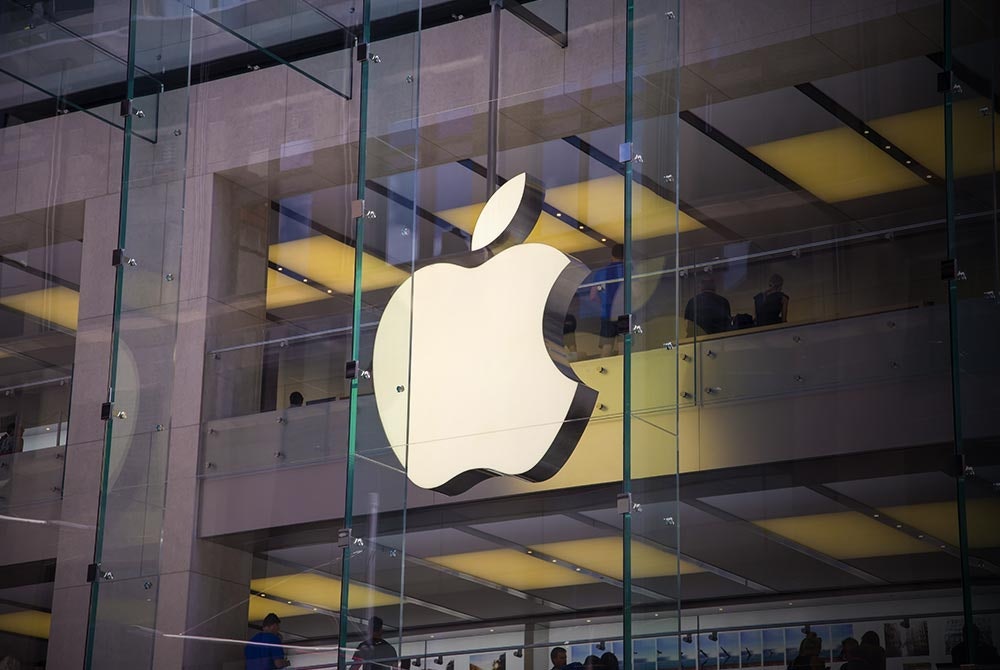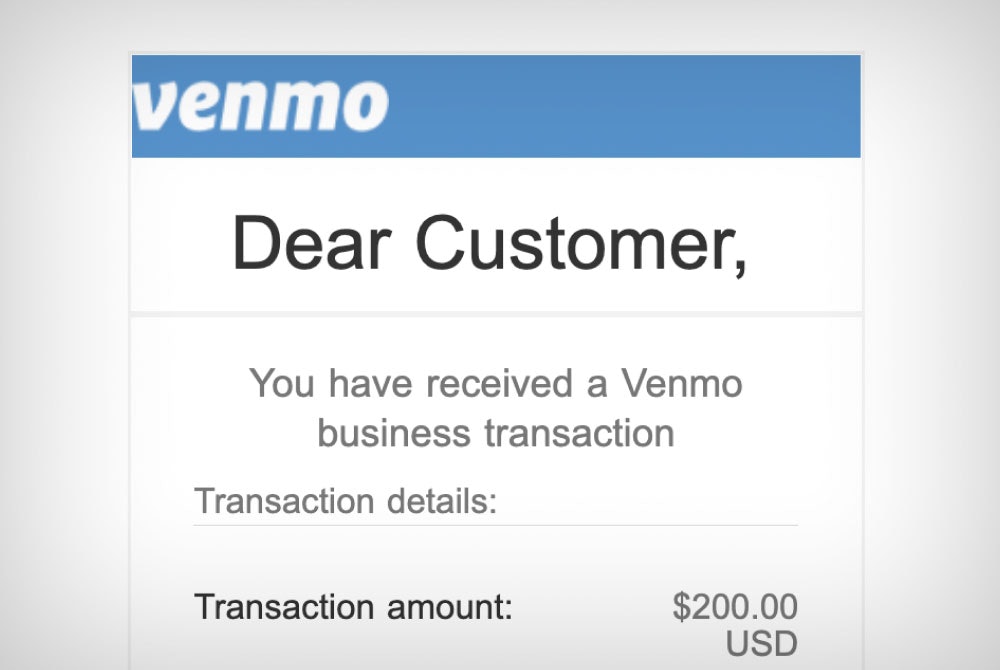- Apple Scams: Know the Red Flags
- Beat Apple Scams
- How Do You Check if Your Apple Account Has Been Compromised?
- What To Do If Your Apple Account Has Been Compromised
- How to Protect Your Apple Account
- Common Apple Scams
- Frequently Asked Questions
Apple is one of the most well-known companies in the world. Millions of people use their products every day. But just like many other large companies, fraudsters target the brand’s customers using any number of Apple scams.
In fact, the popularity, reputation, and name recognition of Apple are what make these types of scams prevalent. People see the Apple name or logo and think that means everything will be okay, but that is not always the case.
Apple Scams: Know the Red Flags
One of the most common Apple scams is a phishing scam where you receive an email, text, or phone call that seems like it is from Apple, such as:
- An email with an Apple ID order receipt
- An email that states your Apple account is locked
- A phone call or text message from someone claiming to be with Apple support
- A spammy iCloud calendar invitation
Once you click the link in the email or calendar invite or answer the phone call, scammers will present you with a form to enter your Apple login information, or a fake Apple support person will ask for them.
The emails, texts, and phone calls scammers may use to trick you can be persuasive, but there are a few clues to look for to determine if you are being scammed:
- An email address that doesn’t match Apple’s domain (e.g., app1e.com instead of apple.com)
- Bad grammar or spelling
- Logos that are blurry or don’t look quite right
- Incorrect Apple ID
- A sense of urgency or scare tactics
- Vague greetings (Apple will address you by your name)
Apple will never ask you for your Apple password, Social Security number, credit card details, or any other sensitive information. If someone claiming to be from Apple asks for this information, it's a scam.
If the email is about a purchase, you can always check your purchase history from any Apple device instead of clicking on an email link. Also, any official purchase receipts from Apple will include your current billing address. If you don’t see that, or if the address is invalid, then the email is from a scammer.
Apple email scammers are getting smarter when creating their emails. They may use the Apple logo to make the email seem more authentic, and the email as a whole may look legitimate. Double-check that the Apple ID in the email is actually yours and make sure the email actually comes from Apple.
Beat Apple Scams
You would think it would be easy not to fall for scams like these, but the sense of urgency or fear these Apple scams create can sometimes make you bypass logic. Here are some tips to keep in mind whenever someone who may or may not be a representative of Apple contacts you:
- If you receive an email that you think is from Apple but aren’t sure, don’t click the link. Log in to your account by visiting Apple’s legitimate website and check your account there.
- Never respond to any emails or phone calls claiming to be from Apple that request your password, credit card numbers, or any other sensitive information. Apple will never ask for these via email or phone.
- If you get a suspicious or unsolicited phone call from someone claiming to be from Apple support, just hang up. If you actually need support, call back on the official number.
Apple
Website: https://www.apple.com
Contact page: https://support.apple.com/contact
It's important to verify links and contact details to beat imposters.
How Do You Check if Your Apple Account Has Been Compromised?
Your account may be compromised if you receive an account notification about a change you didn’t make. Here are some examples:
- You don’t recognize some of your account details.
- You see charges on your account that you didn’t make.
- You see messages that you didn’t send.
- You see items you didn’t delete.
- Your device is locked by someone other than you.
- Your password no longer works.
- You receive a two-factor authentication code from Apple even though you weren’t trying to log in to your account.
- You receive an email notification telling you someone logged into your account.
Apple will never call you about a compromised account. If you receive a call from Apple Support about unauthorized access to your Apple or iCloud account, it’s a scam. Apple will only send notifications about security via email.
What To Do If Your Apple Account Has Been Compromised
If you have fallen for an Apple scam and your account has been compromised, then you need to take immediate action. Depending on the information the scammers got from you, you will need to protect your Apple account or financial accounts.
Change Your Apple Password
If you gave your Apple password to a fake Apple support technician or entered it on a fraudulent website, then you may be able to change your password before the scammers have time to. If they can change your password before you do, you may have to call Apple’s support number directly at 1-800-275-2273.
Contact Financial Institutions
If you entered credit card details or bank account information into a scam site, you need to contact the bank or credit card company to prevent any theft of your assets. They can help you find fraudulent activity on your account, shut off your cards, and may even remove the fraudulent charges from your account.
Report Apple Scams
Report the scam so authorities can investigate it and other Apple users can be warned. Phishing scam emails can be forwarded to [email protected] and all other Apple scams can be reported to the Federal Trade Commission (FTC) or your local authorities.
Check Connected Devices
Log into your iCloud account and check to see which devices are signed in. You can do this by following these steps:
- Click on your profile name on the top right.
- Click on “Account Settings” from the dropdown.
- Check the devices listed under “My Devices.”
- If there are any devices that you don’t recognize, click on it then click the “x” next to the name.
How to Protect Your Apple Account
The best way to protect your Apple account is to make sure it is as secure as possible. Your Apple ID gives you the ability to access the App Store, Apple Music, iCloud, iMessage, FaceTime, and also contains payment details. A breach of your Apple account can really make life hard.
Here are a few tips for protecting your Apple account:
- Make sure you use a strong password for your Apple ID
- Choose security questions that will be hard for other people to guess
- When you log in, check that the browser is connected securely to apple.com and not to a fake site like app1e.com
- Change your password frequently and do reuse old passwords
- Never give out the password to your Apple account to anyone
Apple Two-Factor Authentication: Keeping Your Account Safe
In March 2021, Apple made two-factor authentication mandatory for all users in an attempt to provide extra protection against scammers and hackers.
Common Apple Scams
It’s important to educate yourself on the different types of Apple scams so you can protect yourself and your account in the future.
Apple Receipt Email/Text Scam
Some scammers will email you a “receipt” and will try to get you to click on a suspicious link. These scammers may also send text messages to your phone. They will be similar to the emails in that they will try to get you to click a link.
Again, the best thing to do is ignore these and then log into your account from your Apple device to see if there is anything that actually needs attention.
Apple Lost Phone Email Scam
Scammers might try getting you to click on a link by alerting you to a “lost” phone of yours. This is another phishing scam attempting to steal your information.
Apple Account Issues Phone Scam
Scammers may also call you by phone to convince you that there are problems with your Apple account. It is best just to hang up if you get one of these. In the most common scenario, the scammer/caller will tell you your iCloud account has been hacked by someone in a different country (or multiple countries). They will either ask you for your account information or direct you to a fraudulent Apple website where you can enter your information.
If you ever receive a phone call from Apple support but didn’t request help in the first place, hang up immediately.











Comments